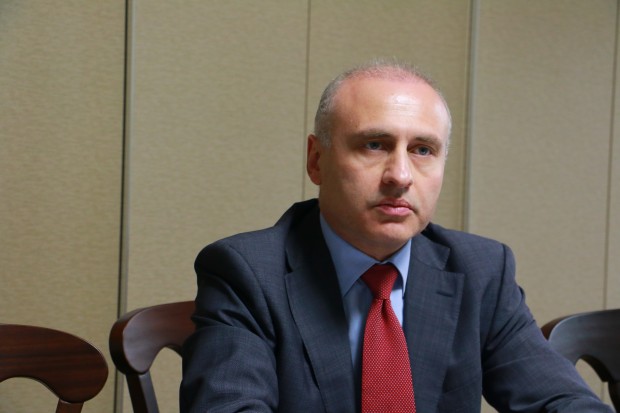The Aftermath of Russia-Georgia War

Georgian Ambassador to Korea, Mr. Nikoloz Apkhazava talks about the 7th anniversary of Georgia-Russian war on Friday, 7th August 2015.
Russian aggression against Georgia started in early 1990s, when Moscow responded to Georgia’s move to its independence with open military and economic support to the separatist forces in two regions of Georgia – Abkhazia and South Ossetia. On early August 2008 it began its assault on Georgia.
Moscow justified the invasion of Georgia with an absurd argument to protect its citizens, who became such as a result of illegal passport policy. On August 12, on behalf of the EU, the president of France Nicolas Sarkozy successfully mediated a ceasefire between Georgia and Russia.
The five-day war resulted in the occupation of 20% of Georgian territories, 396 deaths and 1721 severe injuries, as it also brought a new wave of massive ethnic cleansing of the Georgian population from South Ossetia. On August 26, 2008, the Russian federation, in violation of the ceasefire agreements recognized two regions of Georgia as independent. Enabling Moscow to establish full control over the Abkhazia and South Ossetia regions and “legitimize” its illegal military presence.
On the 7th anniversary of the war, and instead of withdrawing its forces, the Russian Federation has reinforced its military bases. The human rights situation inside the occupied regions remains volatile. The local population is deprived of minimal life necessities, while rights such as freedom of movement and native language education are restricted. In 2011, the Russian occupation forces started the installation of wires and other obstacles along the occupied regions.
The Government of Georgia seeks phased normalization of relations with the Russian Federation, through which it has taken several steps. But Moscow refuses to undertake legally binding commitment to the non-use of force in response to Georgia’s pledge.
It should be noted that the Geneva International Discussions remain the only format for addressing the security related and humanitarian issues between Georgia and the Russian Federation.
Statement of the Ministry of Foreign Affairs of Georgia regarding the 7th anniversary of the August 2008 War
7 August 2015 marks the 7th anniversary of Russia’s large-scale military aggression against Georgia and occupation of the regions of the sovereign and independent state. Seven years after the August 2008 war, 20 percent of Georgia’s territory remains under occupation, resulted in mass violations of fundamental rights of the local population and the hundreds of thousands of victims of ethnic cleansing, which are still denied the right to safe and dignified return to the places of their original residence.
Despite the constructive measures undertaken by the Georgian Government, Moscow continues the policy of creeping annexation which is directed against Georgia’s sovereignty and territorial integrity and violates the fundamental principles of international law and the 12 August 2008 Ceasefire Agreement. A clear illustration of that is the signature of the so-called “treaties” on integration with the Sokhumi and Tskhinvali occupation regimes, the continuation of the installation of artificial obstacles along the occupation line and placement of banners marking the so-called “state border” by Moscow. Such actions violate not only the fundamental principles of international law, but infringes civil, social and economic rights of local residents, primarily, their right to the freedom of movement.
The Georgian side underlines the importance of the format of the Geneva International Discussions, established in accordance with the 12 August 2008 Ceasefire Agreement. Georgia is committed to further continue constructive engagement in the Discussions aimed at resolving the outstanding political issues between Georgia and Russia, first and foremost the non-use of force pledge by the Russian Federation, the establishment of international security arrangements, as well as the safe and dignified return of the displaced population.
In the existing situation, firm and consistent support of international community is of utmost importance. Georgia expresses its gratitude and once again calls upon the international community to continue its firm support for sovereignty and territorial integrity of Georgia.
During last years, the Government of Georgia has undertaken a number of significant steps to de-escalate the conflict with Russia, which resulted in the resumption of trade, cultural and humanitarian relations between the two countries. The Government of Georgia will further continue the implementation of de-escalation policy and will use all available diplomatic and political tools in order to resolve the existing conflict through peaceful means only, based on the principle of sovereignty and territorial integrity of Georgia within its internationally recognized borders.
The Ministry of Foreign Affairs of Georgia would like to seize this opportunity and once again expresses its deepest sympathy to the families of the Georgian soldiers and civil population who fell a victim to the August 2008 War.

























































